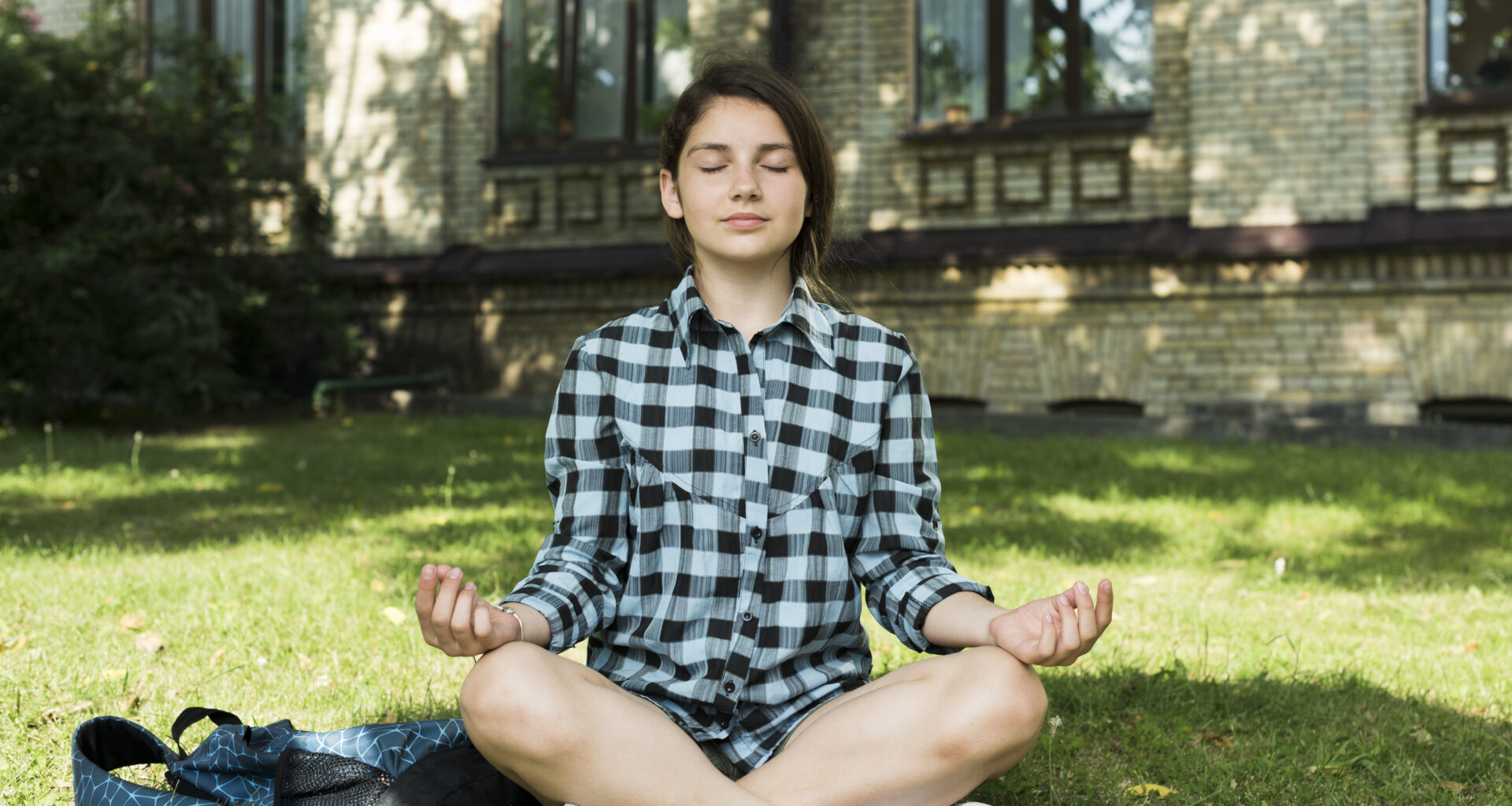“FOMO,” or the Fear of Missing Out, is a pervasive feeling that many individuals experience in today’s hyperconnected world, particularly on social media platforms. It’s the anxiety-inducing sensation that arises when we believe others are enjoying experiences, events, or opportunities that we are not part of. This fear can stem from seeing the ‘perfect lives’ that are posted online where people tend to selectively showcase only the highlight reels of their lives. This presentation of an overly idealised version of reality can lead to feelings of inadequacy and envy by creating unrealistic expectations and comparisons, and also fuels anxiety about being left out or left behind from what appears to be a more fulfilling or exciting life than our own. Even if you try to take a break, the fear of missing out on ‘important’ updates keeps you addicted and coming back for more. Consequently, individuals may feel pressured to constantly check their social media feeds, fearing they might miss out on something important or enjoyable.
Meditation: It’s Not Just Sitting There Doing Nothing
Meditation is often misunderstood as simply sitting still and doing nothing, but in reality, it’s a profound historical practice that involves training the mind and cultivating awareness to promote self-actualisation and overall well-being. While it does involve stillness and quieting the mind, meditation is an active process that requires focus, intention, and discipline.
There are many types of meditation involving various techniques such as focused attention, mindfulness, or visualisation to promote mental clarity, emotional balance, and inner peace. It is a practice that encourages observation of thoughts, sensations, and emotions without judgement or attachment, allowing individuals to develop a deeper understanding of themselves and their experiences.
Beyond relaxation, meditation offers a wide range of benefits for mental, emotional, and physical well-being. It can help reduce stress, anxiety, and depression, improve concentration and cognitive function, enhance self-awareness and emotional resilience, and foster a greater sense of connection with oneself and others. In essence, meditation for Gen Z can be a powerful tool for self-discovery, self-care, and personal growth, offering a pathway to inner peace, harmony, and fulfilment in life.
My Meditation Journey: From Skeptic to Stress Slayer
Initially sceptical, I started meditating out of sheer curiosity and just to ‘try it out’. I will admit, it was boring and slow at the start, and it felt like I was failing since I could not focus or keep my mind silent. But slowly with repeated practice, I started to realise what all the hype was about. It has now transformed into a powerful tool for stress management and self-discovery for me, where I close my eyes and meditate every chance I get to help manage my anxiety and stress levels. What started as a mere experiment evolved into a daily practice that became essential for maintaining my mental well-being amidst life’s challenges. Through meditation, I learned to quiet my racing thoughts, find inner peace, and cultivate a deeper sense of self-awareness. Over time, I transitioned from being a sceptic to a staunch advocate of meditation for Gen Z, witnessing firsthand the transformative power of meditation in my life.
Benefits for the Busy Bee: How Meditation Can Help Gen Z
In today’s fast-paced and capitalist world, Gen Z faces unprecedented levels of stress and pressure from our hustling culture. Amidst juggling academics, extracurricular activities, social commitments, and digital distractions, all the while dealing with environmental stressors such as inflation, economic uncertainty, climate change, political upheaval; finding moments of calm and clarity can seem elusive. However, meditation for Gen Z offers a solution tailored to the needs of the busy bee generation. By incorporating meditation into their daily routines, Gen Z can reap a myriad of benefits, including stress reduction, improved focus and concentration, enhanced emotional resilience, and better overall well-being. Whether it’s a short mindfulness exercise between classes or a prolonged guided meditation session before bed, carving out time for meditation can empower Gen Z to navigate life’s challenges with greater ease and equanimity. I personally meditate whenever I can; from short 1 minute breathing exercises to simple meditative practices in the shower, I incorporate it in my daily routine to help manage stress, anxiety and anger.
Getting Started: Your Meditation Toolkit
Starting out with meditation can feel daunting and difficult, but with the right tools and resources, anyone can cultivate a fulfilling practice. Here’s your essential meditation toolkit to kickstart your journey to inner peace and mindfulness:
- Guided Meditation Apps: Explore popular meditation apps like Headspace, Calm, or Insight Timer, which offer a wide range of guided meditation sessions tailored to various needs and preferences. These apps provide step-by-step instructions, soothing background music, and expert guidance which are perfect for beginners..
- Meditation Cushion or Mat: Create a comfortable meditation space by investing in a meditation cushion or mat. This dedicated space can help signal to your mind that it’s time to relax, unwind and focus inward. Choose a cushion or mat that supports proper posture and alignment to ensure a comfortable and sustainable meditation practice.
- Breathwork Techniques: Breathwork is a foundational aspect of meditation, helping to anchor your awareness and calm the mind. Experiment with different breathwork techniques such as diaphragmatic breathing, box breathing, or alternate nostril breathing to find one that resonates with you. These techniques can be incorporated into your meditation practice to deepen relaxation and concentration. I have found alternate nostril breathing to be highly effective during anxiety attacks.
- Journaling Supplies: Keep a meditation journal to track your progress, insights, and reflections along your journey. Set aside time before or after your meditation sessions to jot down any thoughts, emotions, or observations that arise. Journaling can enhance self-awareness and provide valuable insights into your meditation practice over time. If you don’t like to write physically, you can always opt for digital journaling apps.
- Mindfulness Bell or Timer: Maintain a sense of structure and focus during your meditation sessions with a mindfulness bell or timer. Set a gentle chime or bell to signal the beginning and end of your practice, helping you maintain presence and awareness throughout. Alternatively, use a meditation timer app with customizable features to tailor your sessions to your preferences. Make sure to start with shorter time periods until you get comfortable for longer sessions.
- Comfortable Clothing: Choose loose, comfortable clothing that allows for unrestricted movement and relaxation during meditation. Opt for breathable fabrics that promote ease of movement and comfort, ensuring you can fully immerse yourself in your practice without distractions or discomfort. Even outside of meditation, being comfortable in what you wear is important for maintaining a calm and happy mood.
- Open Mind and Heart: Finally, approach your meditation practice with an open mind and heart. Embrace curiosity, patience, and compassion as you explore different techniques and experiences. Remember that meditation is a journey, and each moment offers an opportunity for growth, learning, and transformation.
Meditation is a Journey, Not a Destination
Remember, meditation is a journey that never ends. It has no destination, and only progresses as you keep exploring and discovering what works for you; and utilising it consistently to boost your mental health, overall well-being, and personal and spiritual growth.Meditation emphasises presence and mindfulness over achieving specific outcomes. It invites us to observe our thoughts and emotions without judgement, fostering greater insight and clarity into our inner landscape. Each moment of meditation offers an opportunity for growth and learning, guiding us along a path of deepening awareness and acceptance.
Ready to Level Up Your Mind? Start Meditating Today!
There are many sources you can use to start your first meditation session today. You can visit our blog to get started as well as use the following YouTube links for guided meditations:
Conclusion
In conclusion, meditation for Gen Z is a powerful tool for navigating the complexities of modern life with resilience, clarity, and inner peace. From combating the pervasive fear of missing out to promoting mindfulness and self-discovery, meditation equips young individuals with essential skills for managing stress, enhancing well-being, fostering personal growth and developing healthier habits and relationships. By embracing meditation and integrating it into their daily routines, the busy bee Gen Z can unlock the transformative potential of this ancient practice, paving the way for a more balanced, fulfilling, and meaningful existence in today’s fast-paced world. So, whether you’re feeling the FOMO or seeking refuge from life’s hustle and bustle, meditation stands ready as your steadfast companion on the journey towards a happier, healthier, and more harmonious life.
FAQs
Mindfulness and meditation for Gen Z involves cultivating present-moment awareness and non-judgmental acceptance of thoughts, emotions, and sensations to enhance overall well-being and mental resilience. It empowers young individuals to navigate life’s challenges with clarity, compassion, and equanimity.
The Z technique meditation is a mindfulness practice that combines elements of focused attention and open awareness to promote relaxation, concentration, and self-awareness. It involves tracing the letter “Z” with your mind’s eye while focusing on your breath, allowing you to anchor your attention and quiet the mind.
Gen Z finds happiness in authenticity, meaningful connections, and purposeful experiences. They prioritise personal growth, social justice, and environmental sustainability, seeking fulfilment in aligning their values with their actions and making a positive impact on the world around them.






